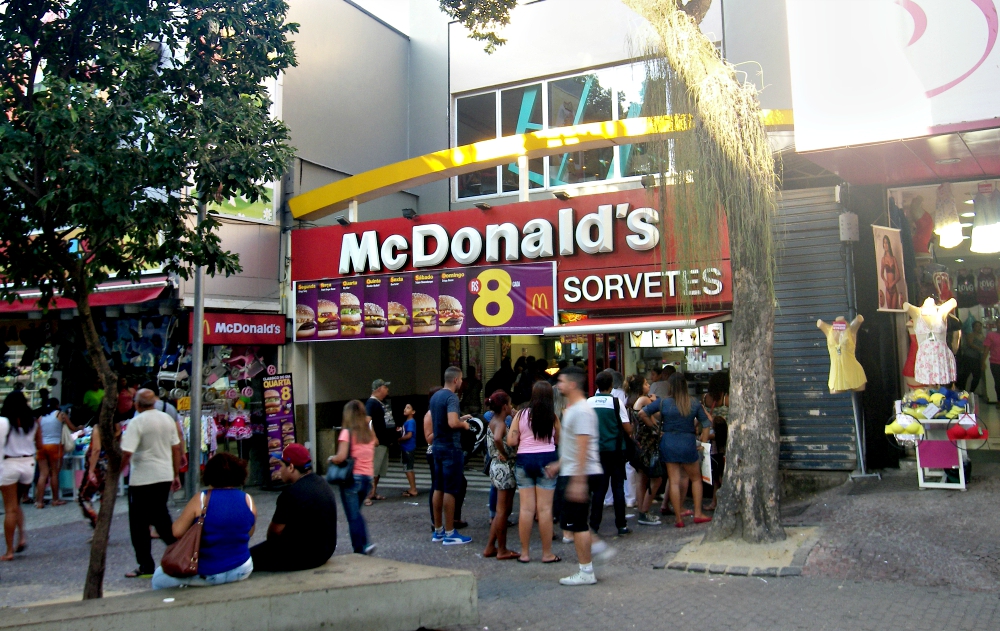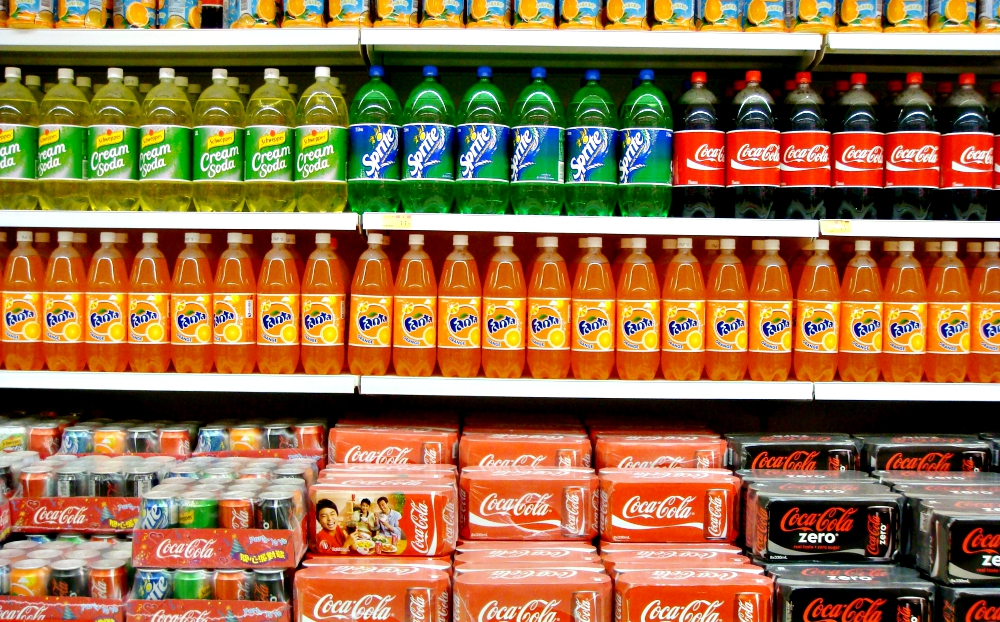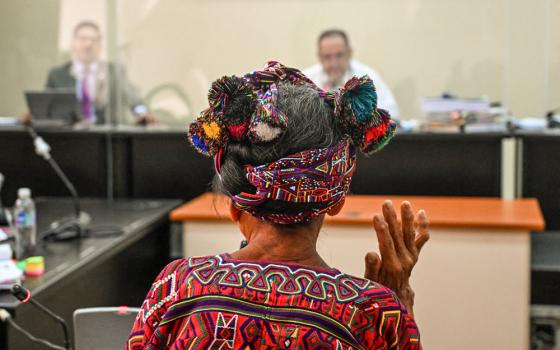
A McDonald's restaurant in Rio de Janeiro (Wikimedia Commons/Guilherme B. Alves)
When Pope Francis visits the United Nation's Food and Agriculture Organization (FAO) in Rome on World Food Day next month, I hope nobody hands him a Coke. One can has about six spoonfuls of sugar.
The U.N.'s important work is up against the international conglomerates that are creating, not reducing, malnutrition by pushing sugar-, salt- and fat-laden food around the world.
Thirty-three years ago, an American television commercial for the Wendy's hamburger chain showed three little old ladies staring at a tiny beef patty on a fictitious competitor's oversized bun. One asked: "Where's the beef?"
Today, they might be asking: "Where's the food?" Fast-food advertising promises bacon (heavily salted), cheese (probably processed) and barbecue sauce (read: sugar) on whatever protein is between the nutrition-free buns or under the crispy fried coating. To be fair, McDonald's sends Smurfs and other toy characters marching across the television screen to remind children about the milk and apple slices in their Happy Meals, but these accompany the French fries and hamburger or fried fish. Don't forget the ketchup.
Pre-packaged fast-food meals for children have been around for 40 years. The idea originated in Guatemala with Yolanda Fernández de Cofiño, who began a children's "Menu Ronald": small hamburger, small fries and a sundae. McDonald's ad agency heard about it and trademarked the "Happy Meal." Doña Yolanda now owns 105 restaurants in Guatemala, El Salvador, Honduras and Nicaragua. She has also built three Ronald McDonald Houses for the parents of hospitalized children.
That's a good thing. Professionals estimate that in Latin America one of every five people under the age of 20 is overweight or obese. And then there is a cardiovascular disease. And Type 2 diabetes. And chronic malnutrition.
Nutritionally challenged fast food is only the half of it. A recent New York Times magazine article took a close look at the way the mega-conglomerate Nestlé has infiltrated the Brazilian food chain. Thousands of Nestlé distributors — all women — bring sugar-dense puddings, cereals and candies to poor women in remote villages.
It's not just Nestlé. PepsiCo and General Mills sell packaged food and sugary drinks there and elsewhere, all contributing to the worldwide epidemic of childhood obesity.

(Pixabay/evelynlo)
The Brazilian women who profit as Nestlé sales representatives suffer the same addictions as their children. The Times reports that at 200 pounds, 29-year-old Celene da Silva suffers from high blood pressure. She loves fried chicken and drinks Coca-Cola with every meal, including breakfast.
A study in The New England Journal of Medicine found that obesity afflicts more than 700 million people (including 108 million children) worldwide and has continuously increased since 1980. That is 10 percent of the people on the planet.
The heartbreak is that in places where food insecurity was the main threat, packaged food has replaced many of the few natural food stuffs available. So, it seems everyone increasingly prefers high-calorie processed foods to beans, rice, maize, simple meats, vegetables, nuts, fruits and fish.
Part of that is because processed foods seem less expensive, given the time and effort to prepare natural foods and the difficulties involved in preserving them. But I think the real reason processed food has pushed real food off the table is its addictive qualities. Salt and sugar create the need for salt and sugar. Sweetened carbonated beverages are typical offenders. Sold to quench thirst, they often include enough salt to make you thirsty.
Advertisement
The problem of food insecurity is not as simple as it may seem, and money alone may not be the solution. While recent studies demonstrate that prosperity brings more food security, greater income makes populations prey to the purveyors of packaged foodstuffs.
The pope's message (read by his secretary of state) to FAO's 40th General Conference held in July in Rome reminds us all: "The right of every person to be free of poverty and hunger depends on the duty of the entire human family to provide practical assistance to those in need."
Money, yes. But money intelligently spent on nutrition, not on junk. Our practical assistance must include calling out the conglomerates that nutritionally rob the poor.
[Phyllis Zagano is senior research associate-in-residence at Hofstra University in Hempstead, New York. Her books include Women Deacons: Past, Present, Future and Women Deacons?: Essays with Answers.]
Editor's note: We can send you an email alert every time Phyllis Zagano's column, Just Catholic, is posted. Go to this page and follow directions: Email alert sign-up.







